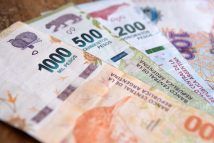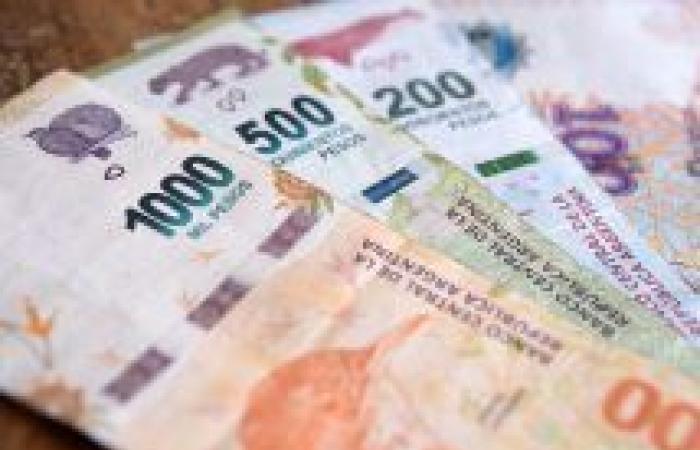After four days without operations and despite the Government’s effort to send positive signals, the financial market billed the Minister of Economy, Luis Caputo, for the contradictions and The dollar strengthened above $1,330 in the City of Buenos Aires.
Two weeks ago the head of the Treasury Palace promised in a public statement that after the approval of the eighth revision Negotiations will begin with the International Monetary Fund (IMF) in search of fresh funds to speed up the exit from the stocks. The intention was confirmed a few days later by President Javier Milei, who also spoke of extraordinary support from the World Bank. However, a few hours ago Caputo retraced his steps and said that “they hadn’t started yet” contacts with the IMF without giving too many details and generating new sources of uncertainty.
Given these twists and turns, the reaction of the markets was expected. Given that without extra financial support, the attempt to get out of the trap in the short term does not seem like a simple task for the Government.
Milei tried to divert the focus of attention by emphasizing the anticipated data from some consulting firms that reported that in the third week of June inflation was “zero”.

In a radio interview granted this Monday from Prague Within the framework of the tour of Europe, the president insisted that the course is correct and that the fruits are already beginning to be seen. And he did not miss the opportunity to deny that the IMF had asked him for a devaluation.
“There are sectors for which it is convenient for there to be salaries in low dollars and poorer and more indigent people and we believe that the situation works differently,” the President stated.
Likewise, he once again described as “fiscal degenerate deputies” to the legislators who promoted a modification of retirement mobility by stating that “the coup attempt to destabilize and break the fiscal balance by certain opposition groups caused the price of bonds to fall” which pushes up the price of dollars financial.

“The Argentine problem is not a monetary problem, it is one of competitiveness, and that cannot be fixed by devaluing. It’s like believing that people can increase the amount of meat they eat simply because it prints money. Wealth is not printed, it is generated,” he concluded.
Despite the president’s efforts to impose his vision, the market did not react in the best way. The blue dollar reached a new nominal record of $1,330 in the City of Buenos Aires, while in Córdoba it was sold for $1,344.
In the stock market, the currency also remained rising around $1,300. The MEP closed at $1,295 while the Cash with Liquidation (CCL) did so at $1,312.

With the wholesaler at 908.50, the gap with the parallel remained at 47%, approaching an area that is already beginning to be viewed with concern by analysts.
Milei insisted that this trend is not linked by his decisions in economic matters but by the “actions of irresponsible deputies” that threaten the fiscal balance.
After the four-day pause, the volume traded in the official market exceeded US$330 million, 20% above the average of previous rounds. In this context The Central Bank bought US$ 47 million, totaling US$ 72 million in the month.
Analyst Gustavo Ber considered that “the auspicious data on fiscal balance, trade balance and even signs of continuity of the disinflation process no longer activate purchase orders, since the eyes of investors “They seem to be migrating towards a new program with the IMF, which could even provide fresh funds, and an exit from the stocks.”
Bonds and stocks also suffered from the economic and political ups and downs, closing lower and pushing the Country Risk to 1,440 points.
New tender
The Ministry of Finance convened a new tender for Capitalizable Treasury Bills (LECAP) and with the intention of setting a reference rate, it was established that the securities that will be offered maturing in September and December will have a minimum rate of 4.25%.
The data is key within a context in which the Government promised that it will seek to move to a positive real interest rate, that is, above inflation. In this way, keeping the money in the banks, contracting the circulation of pesos in circulation. The counterpart is a brake on the speed of exit from the recession.






